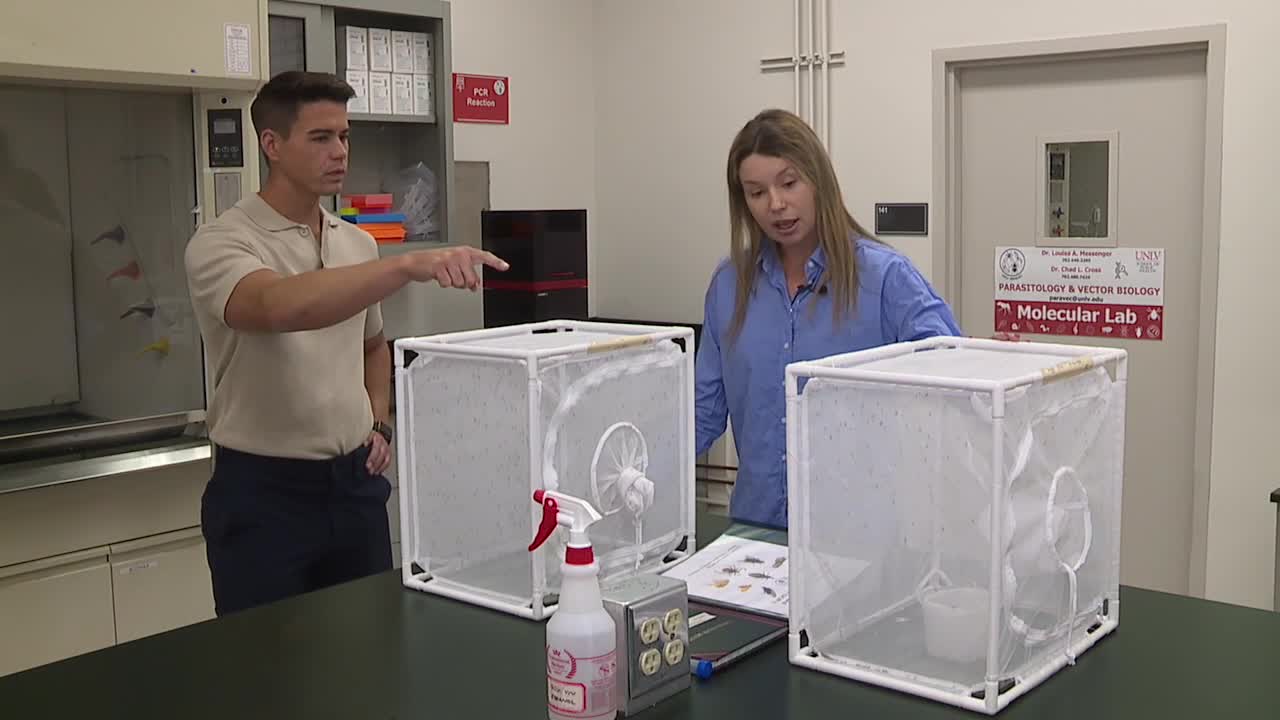More mosquitoes in Southern Nevada are testing positive for West Nile virus than ever before, and a new species in the region is making it harder to get rid of the pests.
On Monday, the Southern Nevada Health District reported mosquitoes in 16 ZIP codes around the Las Vegas area had tested positive for West Nile virus, and mosquitoes positive for St. Louis encephalitis were found in two ZIP codes.
Those findings represent "the highest level of activity in the program's history this early in the season," the health district said.
Mosquito populations are exploding in the Las Vegas region, keeping with a "massive uptick" over the past few years, according to University of Nevada, Las Vegas professor and mosquito disease expert Louisa Messenger.
"We have always had mosquitoes here in Las Vegas, just at much lower densities," Messenger said. "And we didn't have this species until very recently."
The species she's referring to is Aedes aegypti, a much smaller breed of mosquito that typically bites during the day and prefers biting people, unlike other species of mosquito.
Messenger said the species was first detected in Southern Nevada in 2017.
"Initially it was only localized to five or six different ZIP codes, but last year it became explosive," Messenger said. "It is already bad, and it's only June."
There's another reason Aedes aegypti are able to infest so much of the valley: Experts said they're able to breed in much smaller amounts of water than the mosquitoes residents are used to dealing with.
"These ones will rarely breed in large bodies of water. It is much smaller," Messenger said.
As to how they got here and how they are spreading, that's one of the projects Messenger is working on at UNLV.
Her advice to those who are sick of getting bit: Clear standing water from around your property, no matter how small the amount. As little as a bottle cap's worth of water can be enough for Aedes aegypti to breed in.
Wearing insect repellent can help protect against all mosquitoes, including the disease-carrying ones. Experts also recommend wearing clothing that covers your limbs when you spend time outside.

Animals and Insects
Huge venomous spiders with 'flying' ability are invading the East Coast
This story was originally published by Joe Moeller at Scripps News Las Vegas.




